Amid the chaotic balancing act of being a high-schooler — passing classes, making friends, keeping those friends, having a job and figuring out what comes next — there’s often not a lot of time to keep a passion project on the side.
Among Clark County’s thousands of promising high school graduates in 2024 are a handful who stand out for their success as enterprising young adults despite obstacles.
Today, we highlight three who pushed hard for something special. One built a greenhouse for her town. One launched a charity. Another developed a serious clothing business.
They’ve made it clear for all to hear: No challenge is too big.
Meron Ackerman, River HomeLink
Turning a passion to help into action
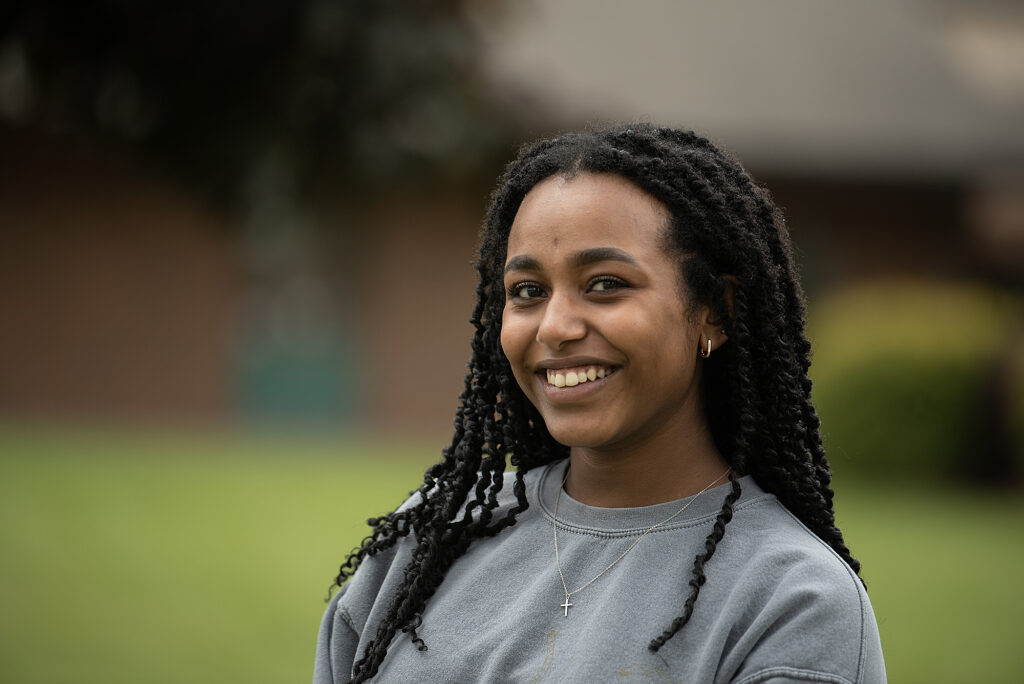
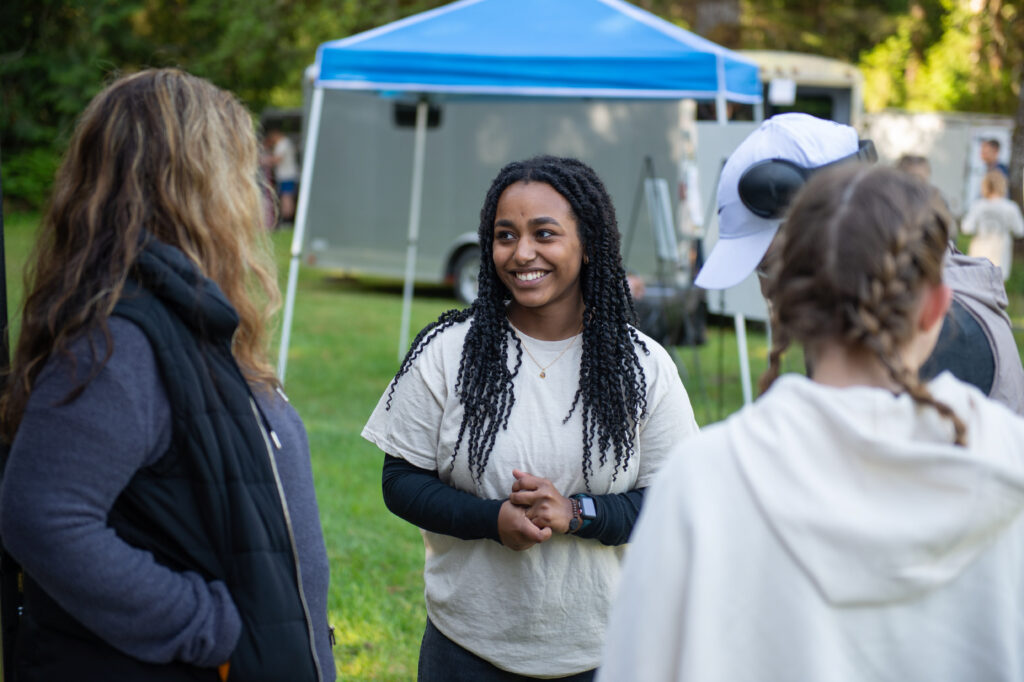
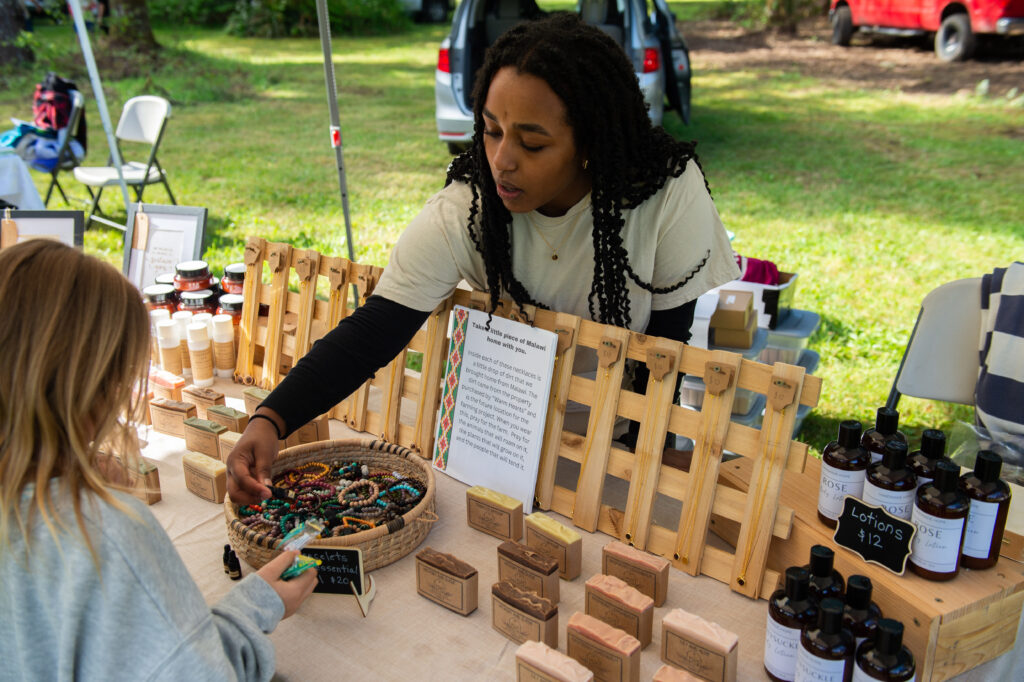
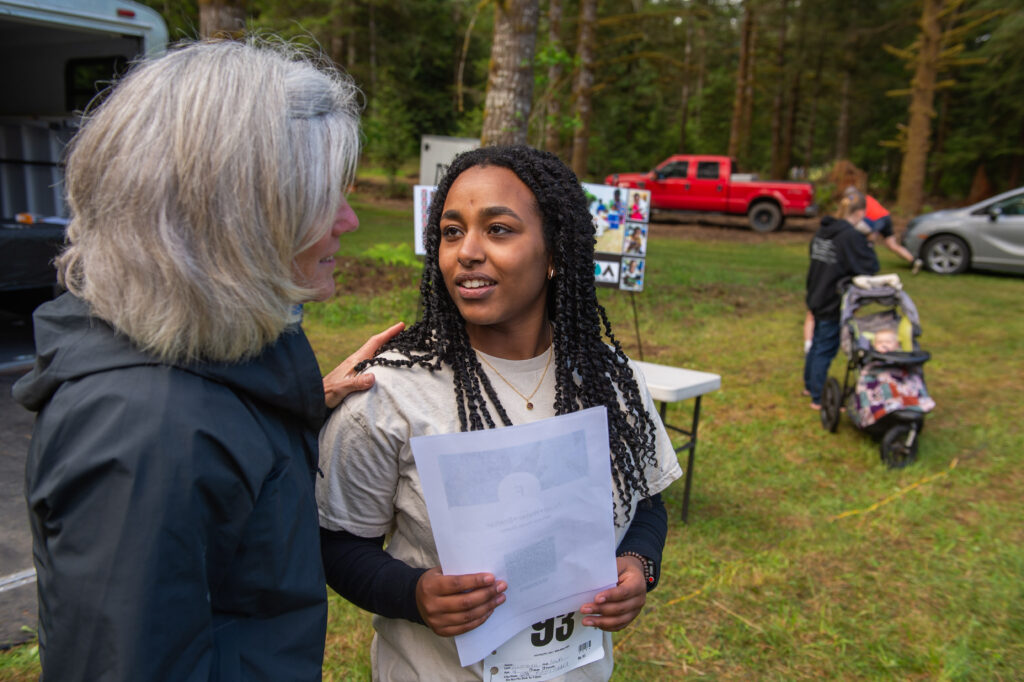
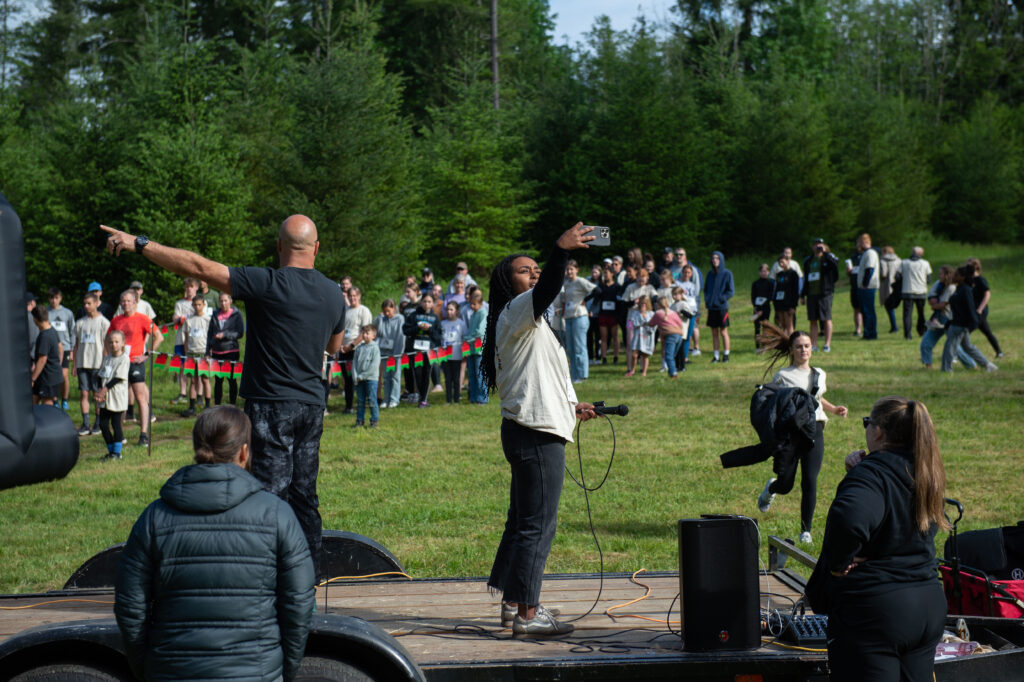
Meron Ackerman, a senior at River HomeLink in Battle Ground, organized a charity 5K run in Yacolt in May to support refugee relief efforts in Malawi, the country from which she was adopted as a toddler. Ackerman, who is set to graduate this month, has raised thousands of dollars to help support schools in Malawi. Photos by James Rexroad and Amanda Cowan
Identity is rooted in confusion. Adoption can compound that feeling.
Years ago, River HomeLink senior Meron Ackerman began to unpack the feelings she had about her own adoption from Malawi, a country of 21 million in east Africa.
In 2018, Ackerman’s seventh-grade teacher, Terry Marvin, visited Malawi and returned with stories of what she had seen at refugee camps and orphanages. Ackerman’s class exchanged letters with children from the schools Marvin visited, further stoking Ackerman’s fascination with her birth country.
Ackerman and her family spent the next few years planning how they might raise money to support children and families like those Marvin had met, as well as how they might visit the country themselves. After raising about $10,000 by selling handmade soaps and hosting charity events, Ackerman, along with her mother and two sisters, booked plane tickets for fall 2023.
“Going into the trip, I was really stressed out. I didn’t know how (the experience) would make me feel,” Ackerman recalled. “These kids have these lives I didn’t live.”
While there, the Ackermans helped build a house for a family and donated the money they had raised to be used for baby formula, school supplies and other resources. Meron Ackerman said the experience introduced her to several difficult situations, but that it opened her eyes to a purpose she had never found in academics at home in Battle Ground.
“It made me feel like every struggle I felt like I had was almost nothing,” she said. “Now we had all this passion to help. I remember thinking ‘We need to do something.’ ”
Ackerman doubled down on fundraising efforts. In May, she helped organize a charity 5K run in Yacolt with Marvin’s brother, Aaron Marvin, who runs a nonprofit supporting refugee camps in Malawi called Food+Water+Shelter. The event drew 75 runners and more than a hundred other visitors. Marvin estimated it raised about $15,000.
Ackerman isn’t entirely sure what the future holds for her but said she remains energized by her trip to Malawi last year. In the past year, she’s spent time shadowing a midwife and sitting in on birthing classes at PeaceHealth Southwest Medical Center in hope of one day working as a doula or lactation specialist for mothers like the ones she had met in Malawi.
“School has always been a struggle for me,” Ackerman said. “I’ve realized I should be so much more grateful for it.”
Terry Marvin, who also attended the 5K event, said she’s grown amazed at how driven Ackerman has become since first meeting her as a middle-schooler.
“I’ve heard from a number of other students who have said that they, too, would like to join in and be a part of what Meron is doing,” Marvin said. “There’s so many from her school here, I think that speaks to her influence.”
Cleo McBride, Discovery
Greenhouse project will cultivate legacy
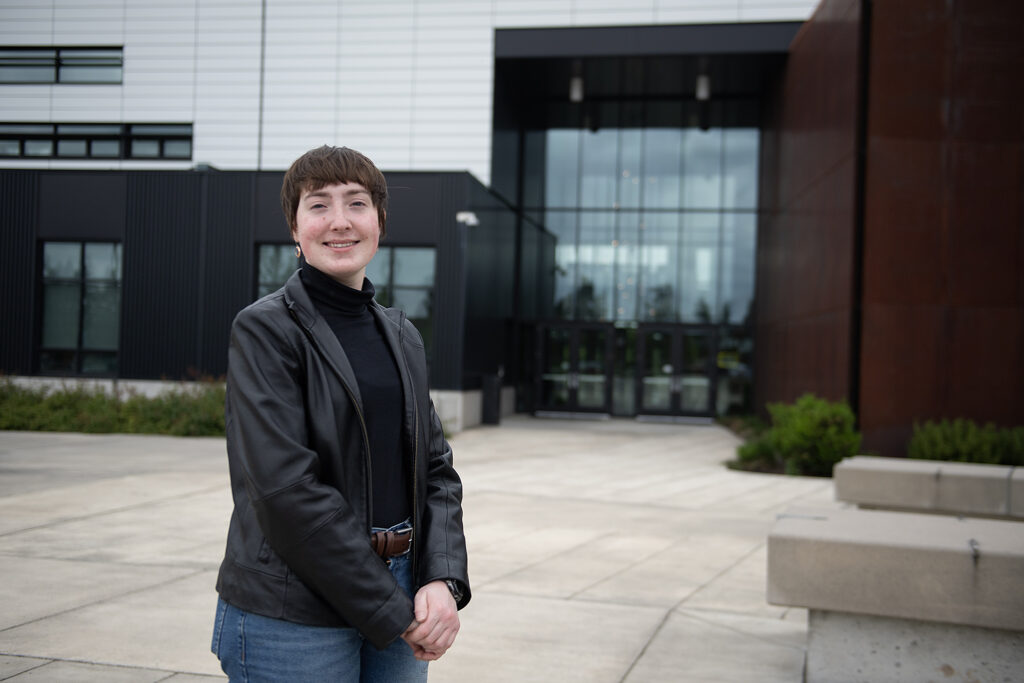
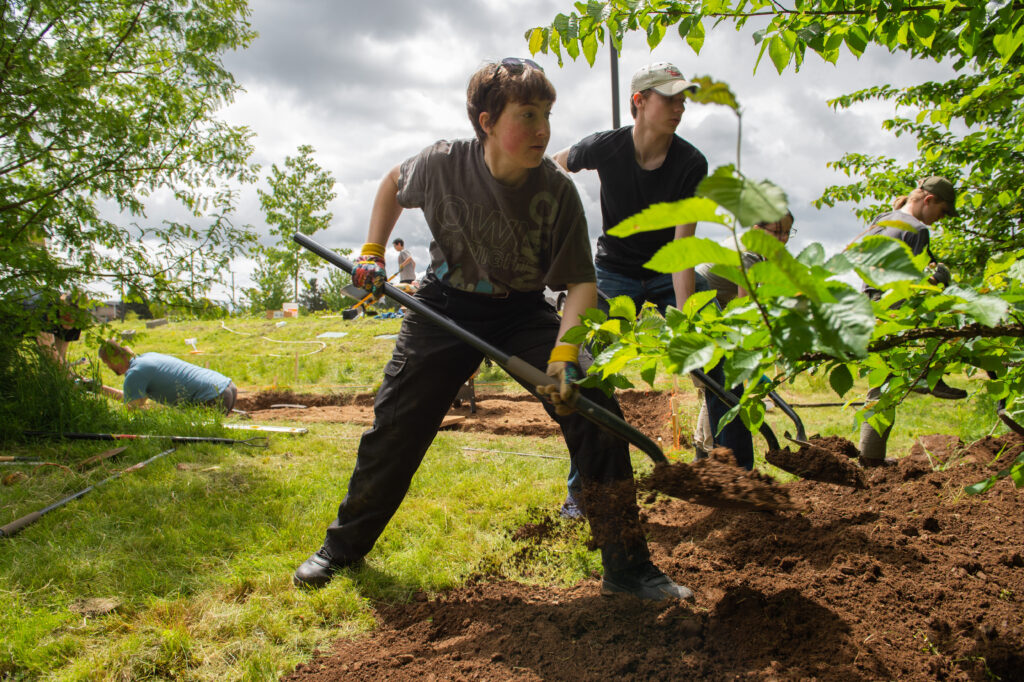
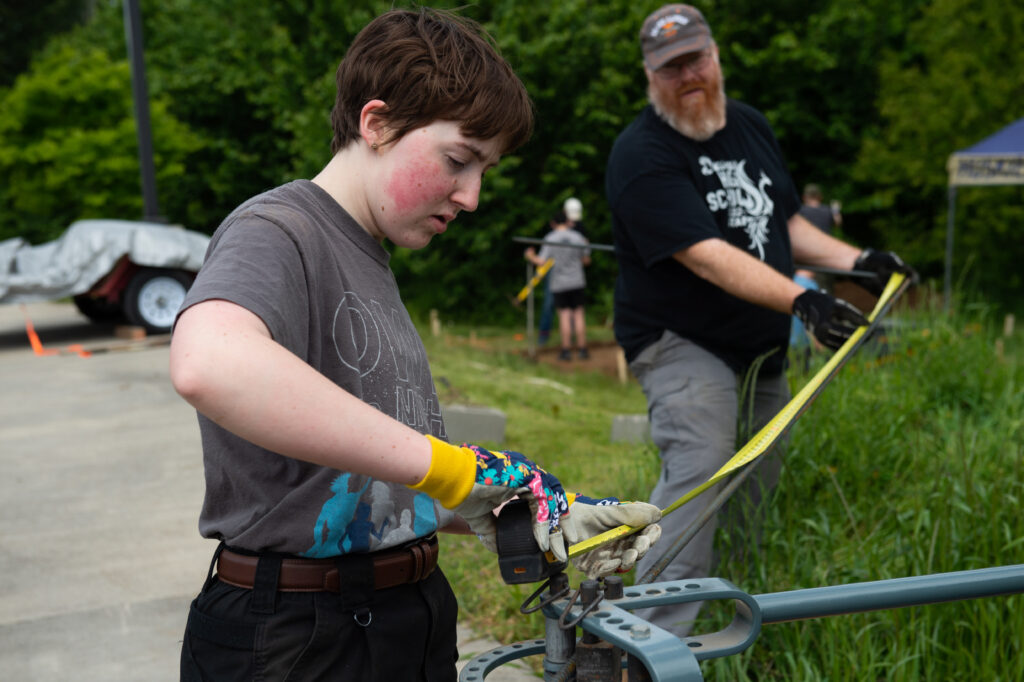
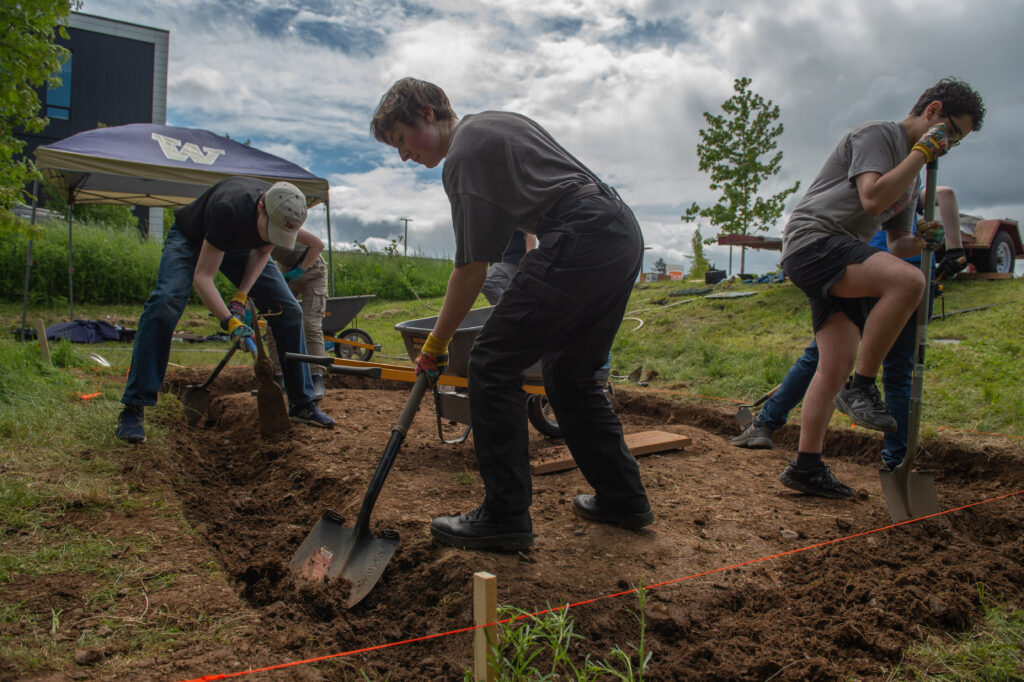
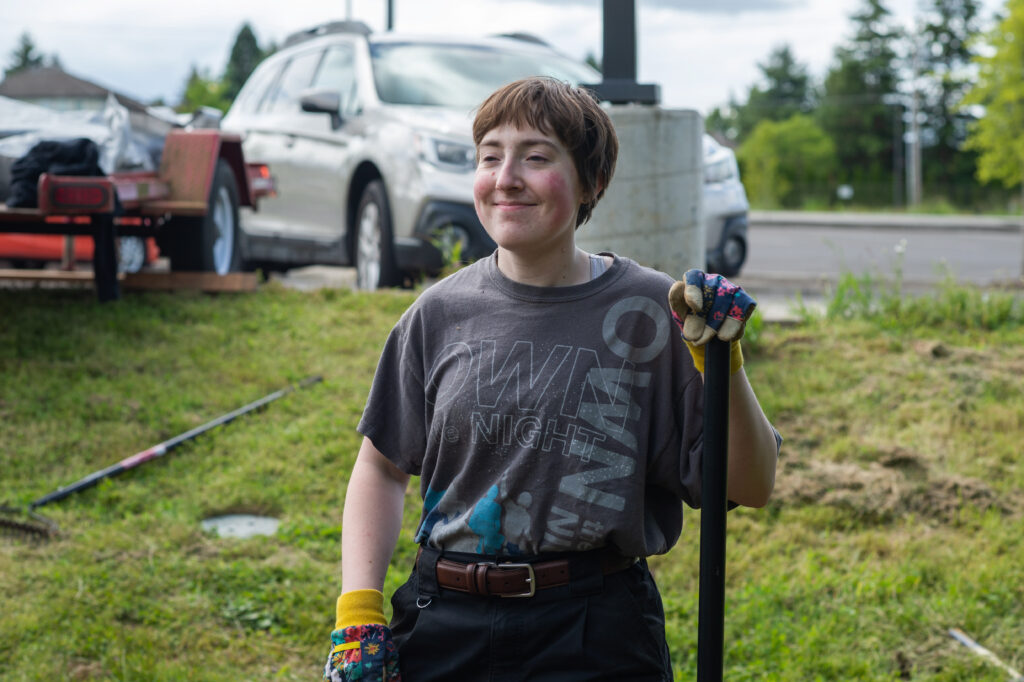
Cleo McBride, who graduated this week from Discovery High School in Camas, worked with other students and staff to begin construction of a new greenhouse on the school’s campus on a Saturday morning in May. Photos by Amanda Cowan and James Rexroad
CAMAS — Cleo McBride has been spending the last few Saturday mornings of high school pretty much doing what one might expect from a graduating senior: standing ankle-deep in dirt digging trenches, bending rebar and pouring concrete.
Wait, that’s not normal?
“It’s pretty amazing,” said Daniel Huld, Discovery High School’s principal. Huld has helped oversee the early stages of the construction of a new school greenhouse, which was fully designed and planned by McBride and a few other students.
“Cleo really started the vision,” he said. “It’s one thing to have an idea, but the tenacity to make it happen is special.”
The vision admittedly began as little more than a smattering of PVC piping, said McBride, who uses the pronoun they. Teachers encouraged McBride to push beyond the bounds of a student project to create both a classroom experience for future students and a community asset.
“I’ve had to make all these pivots and changes. I’ve been revising and revising,” McBride said. “And it’s been really tough to make so many revisions on things I’m passionate about. I continued pushing and challenging myself past emotional and mental boundaries.”
The greenhouse will be 16-by-9 feet and about 7 feet tall, made of cinder blocks, lumber and polycarbonate. Inside, students will maintain a set of starter plants to learn basic lessons about growing and maintaining herbs, while also harvesting produce to be donated to food banks.
McBride worked to secure funding from local construction companies to help put it all together.
“If this is done by students, it will spark more change than something given by the district. We want to build something new,” McBride said.
Behind their current role as a vocal leader, however, is a much shyer, reserved McBride. McBride said the COVID-19 pandemic took a toll on their psyche. Jumping into high school online in 2020 felt surreal, strange — even dreamlike. McBride said they struggle to even remember most of their freshman and sophomore years.
“Those first two years, we were all isolated. I couldn’t meet all these people and mentors who changed my life for the better,” McBride said. “I felt like I needed to make up for lost time; when looking back, I had more time than I thought.”
A project-based learning model proved to be the best environment for McBride. McBride founded a club called Green Phoenix dedicated to the greenhouse project.
Though McBride plans to study criminal justice at Seattle University in the fall, the Discovery High School greenhouse won’t be left in the past. Fundraising for the project will continue and the rest of the Green Phoenix membership will carry on production with McBride’s goals in mind.
Huld, of course, isn’t concerned about how the work ethic will last once McBride is gone.
“A project like this isn’t about one’s own determination, it’s about gathering others,” he said. “Here, you’ve got a senior who’s gathered underclassmen a few weekends in a row. They’ve caught that vision.”
Simmi Sen, Skyview
Proving persistence can be fashionable quality
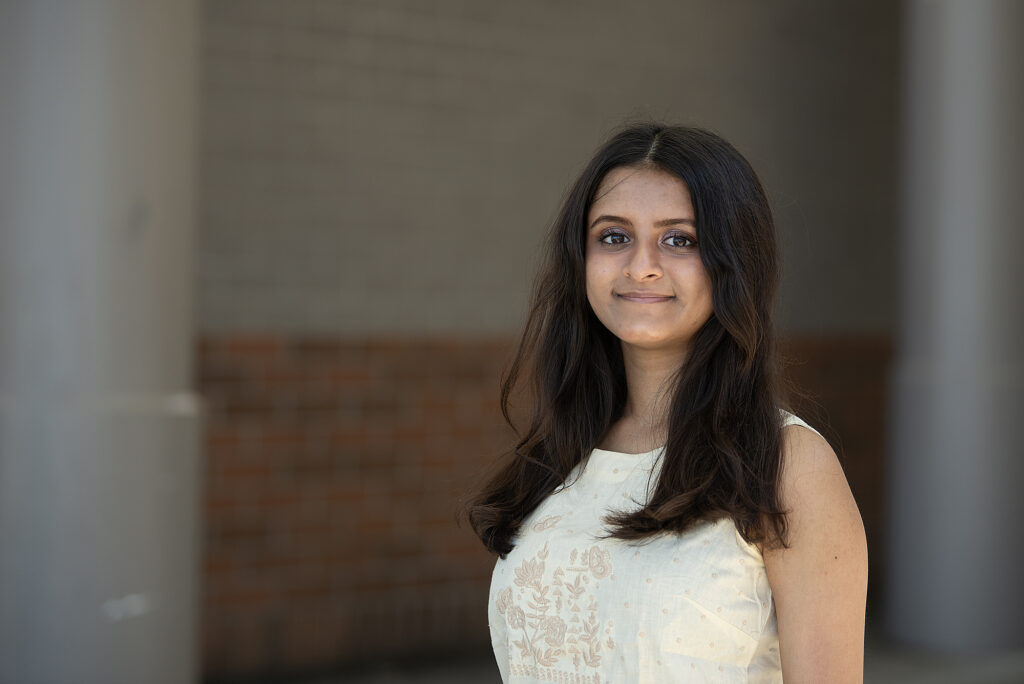
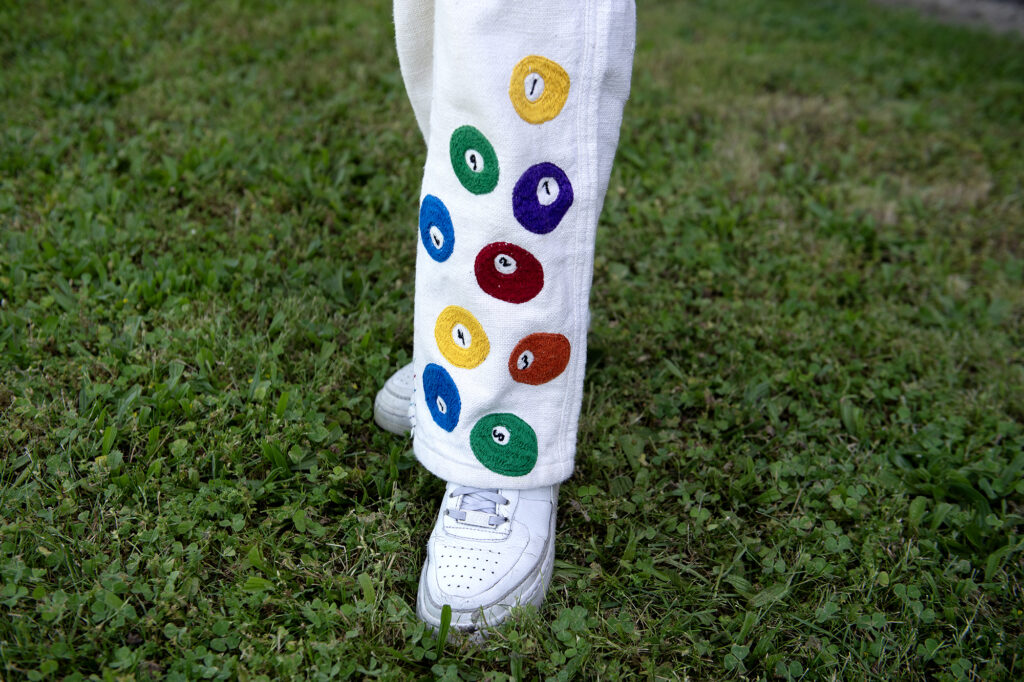
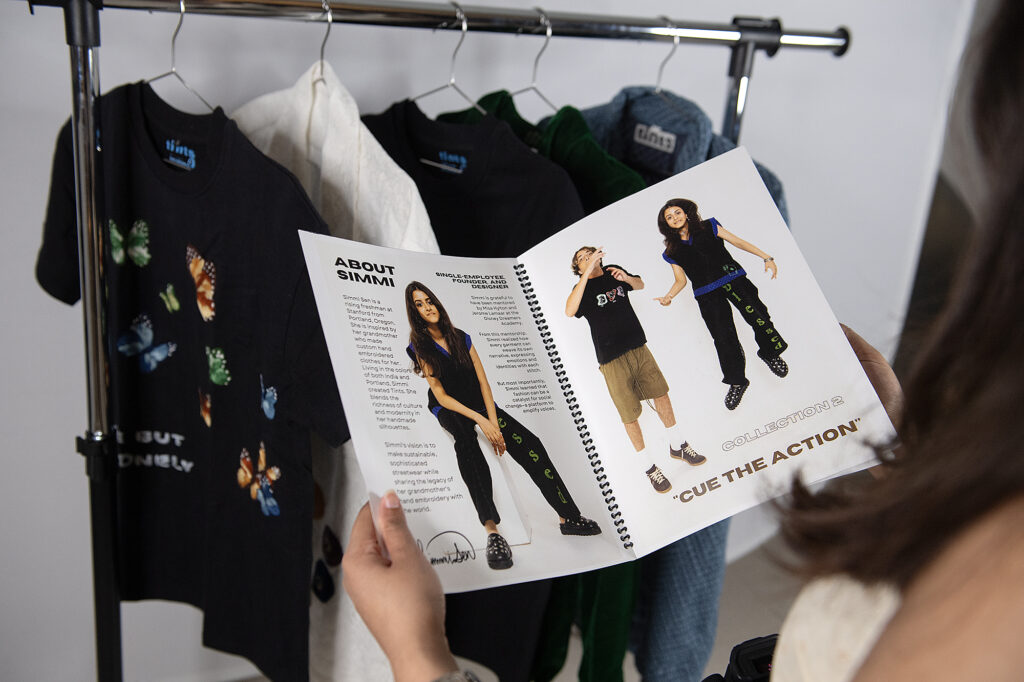
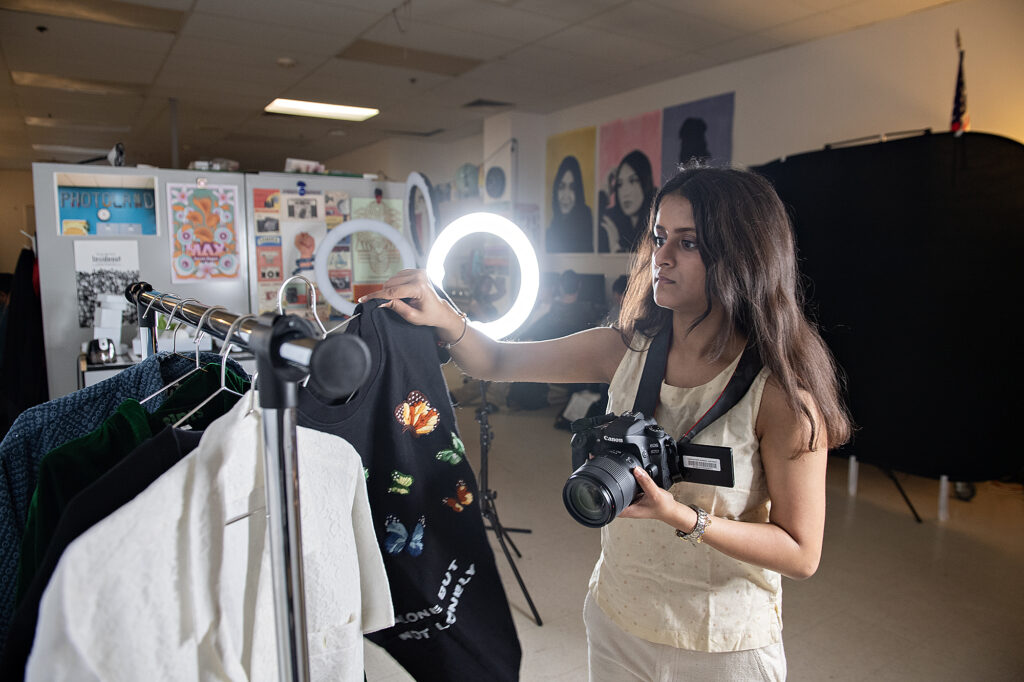
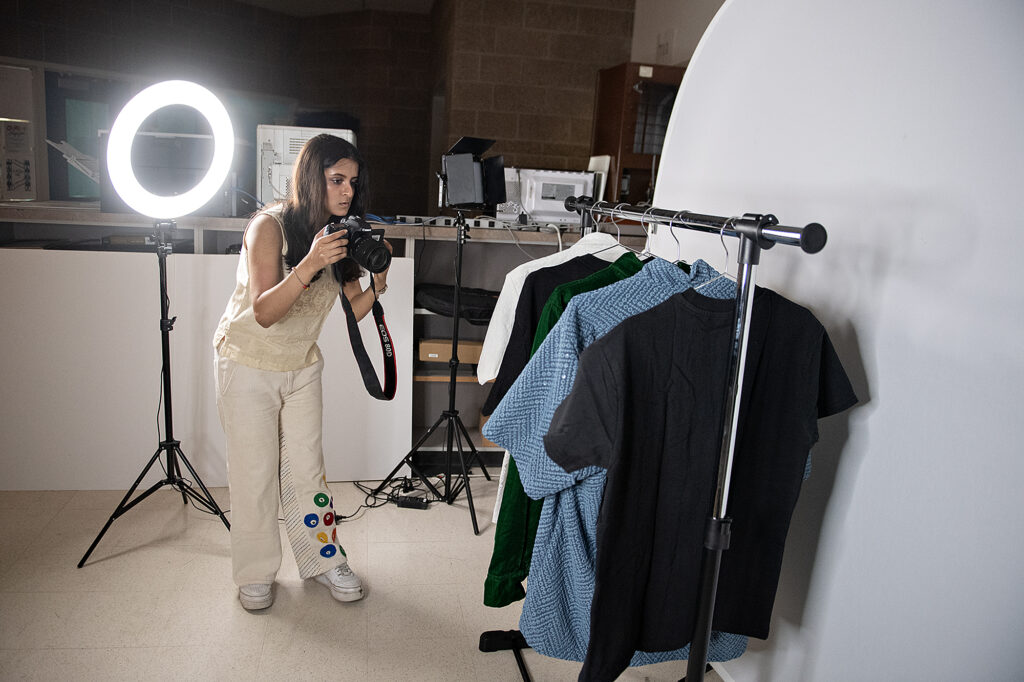
Simmi Sen, a senior at Skyview High School in Vancouver, photographs clothes she made and designed for her brand, Tints, at Skyview’s photography studio in May. Sen, who graduates Monday, is hoping to continue working on the brand while in college this fall at Stanford University. Photos by Amanda Cowan of The Columbian
A single, simple question has defined Simmi Sen’s approach to life these last few years: Why not?
As Sen’s sophomore year at Skyview High School in Vancouver was wrapping up in 2022, she felt she really wanted to pursue a research internship. She just didn’t know where. Then an idea popped up: Why not just send dozens of direct emails to college professors?
“I think maybe three or four replied,” Sen said, laughing.
One of the replies came from Stanford’s Dr. Sophia Wang, who was engaged in research about surgical treatment of glaucoma. Sen soon joined Wang’s research team and helped to present a study in May on how artificial intelligence models can help surgeons receive better feedback on cataract surgeries.
This fall, Sen will attend Stanford full time to pursue research in medicine. Perhaps it’s not all because of an email, but Sen feels like it certainly got her foot in the door.
“It was kind of daunting, honestly,” she said. “They could not reply, but you don’t lose anything. If you think about it, if you don’t send the emails, nothing happens.”
That fearless approach has turned into a big asset for Sen. While dabbling with fashion design early in high school, she sought a way to make her drawings a reality.
“I just wanted to see one of my creations in person. I wanted to hold it in my hand,” she said.
The larger streetwear community, however, is dominated by screen-printing. Sen wanted to take a different approach. Her brand, Tints, invokes the work of her grandmother in India, who she’s watched hand-embroider clothing throughout her life.
Sen’s first few pieces mirrored the bright colors she remembers seeing when visiting India in her childhood. Popular pieces include a pair of pants adorned with colorful pool balls; another is a shirt dotted with bright orange butterflies.
So, with the first prototypes finally in hand, what did Sen do?
“I did the same thing. I went to the same skateboarding stores and clothing stores in Portland over and over,” she said.
Finally, one store — Compound PDX — agreed to put a couple of Tints pieces on its shelves.
Things only went up from there. Sen took the same approach in Seattle and Los Angeles until she continued to find the same results. Within a few months, the brand exploded. She was meeting with industry-leading fashion designers and seeing her clothes supported by celebrities.
“It sounds crazy, but everything happened really gradually and then moved exponentially,” she said. “And then like, (NBA All-Star) Brandon Ingram is wearing my clothes.”
Sen admits that, yes, persistence has sometimes made her feel like a pest. But the thrill of that first “yes” always makes up for it. The newfound philosophy will guide her both at Stanford and in her continued work on growing Tints.
“I remember being worried if I was annoying people, but it was all a good experience,” Sen said. “It gave me so much knowledge on how not to be afraid to reach to people for what you want.”